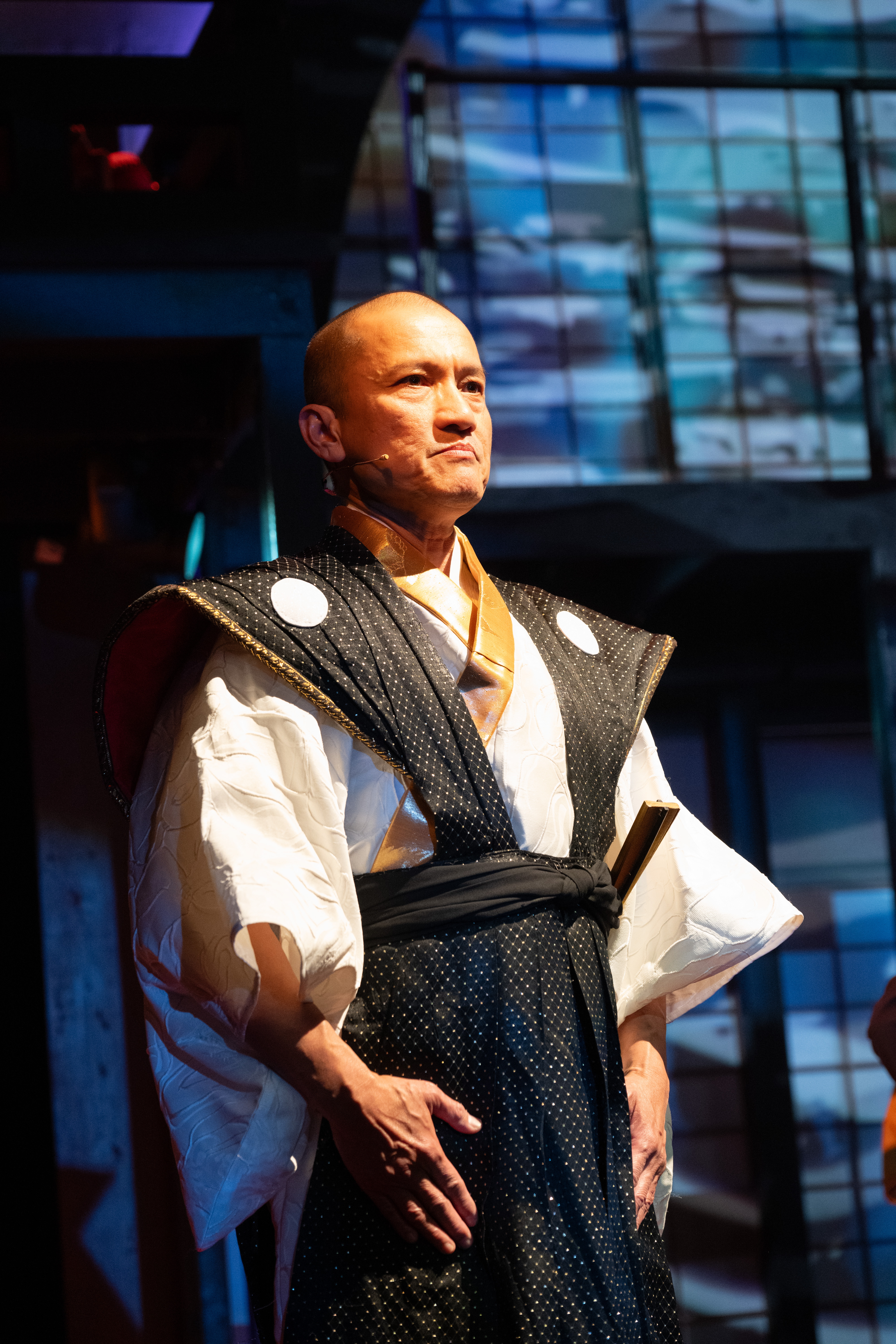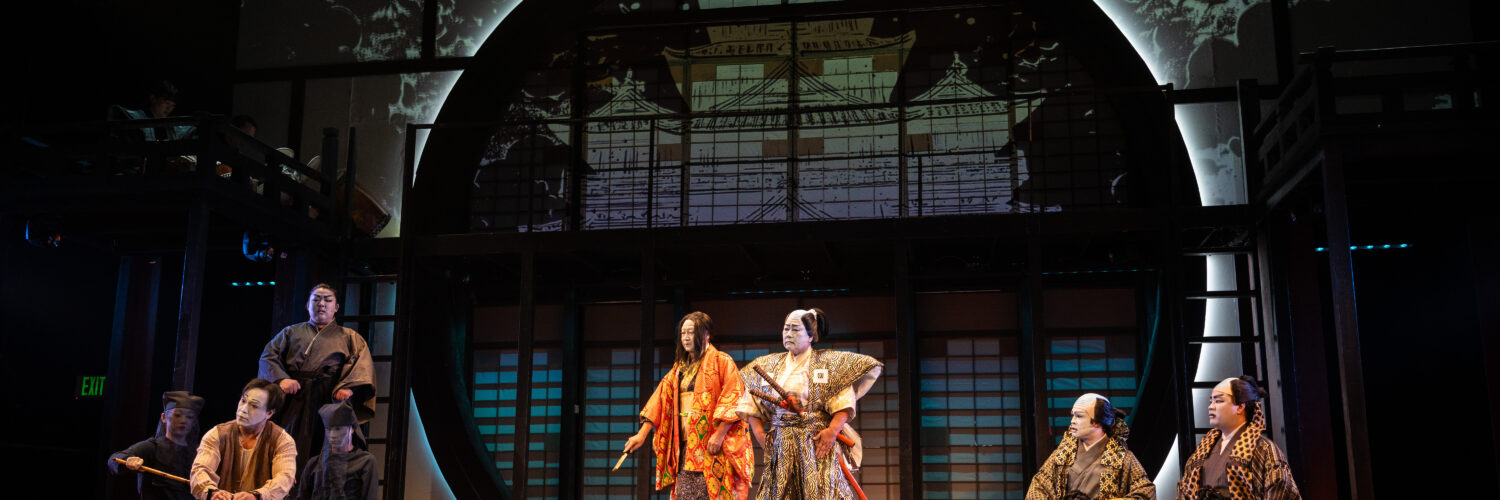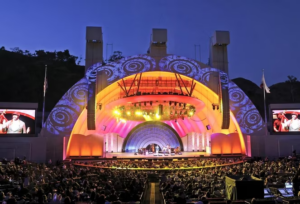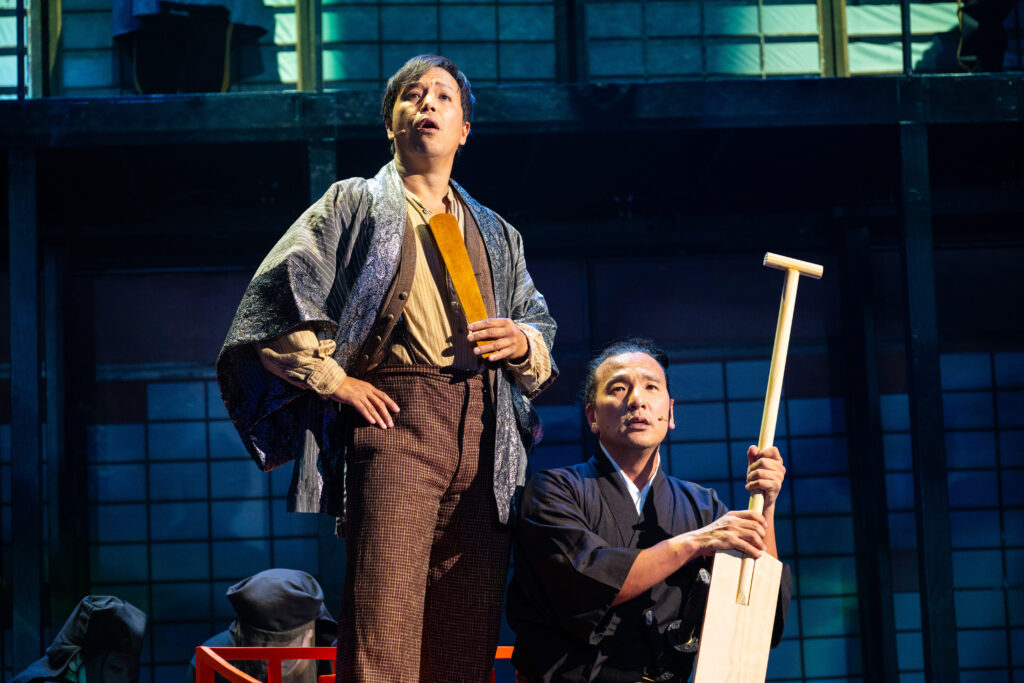
::STOP PRESS::
East West Players extends Pacific Overtures through December 8, 2024
One of the things I most admire about the work of Stephen Sondheim is that he actively tried new things within the musical format. He certainly set himself technical challenges, such as telling a story backwards in Merrily We Roll Along, but he also deconstructed fairy tales in Into the Woods and took on previously unthinkable subject matter such as serial killers or assassins. Perhaps his most unusual work, in terms of specificity, would be his 1976 collaboration with John Weidman, Pacific Overtures. It covers the gunboat diplomacy by the United States and other western powers to open the country of Japan to international trade in the mid-nineteenth century – not a common topic for a 1970s musical. As a result, it’s sui generis, a uniquely poignant and pointed piece of art. The current revival by East West Players is dazzling, and about as strong a production of this play as can be imagined.
In 1853 Japan, the Reciter (Jon Jon Briones) explains to us that things are orderly, and the outside world is deliberately kept at a distance. This way of life is disturbed when fisherman Manjiro (Adam Kaokept) warns the authorities of the approach of American ships. A low-ranking samurai, Kayama (Brian Kim McCormick), is assigned the distasteful task of dealing with the “barbarians” and ordering them never to return. Kayama seemingly succeeds in this job but actually fails upward as the western powers pour into Japan and he eagerly becomes more westernized himself.
Briones is excellent as the Reciter, bringing just the right balance of gravitas and sly humor to the role, exemplified in his superb vocal performances in “The Advantages of Floating in the Middle of the Sea” and “Next.” McCormick is very good as the initially well-meaning but easily influenced Kayama, and he displays this characterization perfectly in his lively performance of “A Bowler Hat.” Kaokept does a nice job of portraying Manjiro’s changing perceptions concerning western influences on his country. Gedde Watanabe is terrific in his performances of “Chrysanthemum Tea” and “Someone in a Tree,” and Aric Martin is tartly amusing with his delivery of “Welcome to Kanagawa.” The entire ensemble refreshingly displays strong singing ability, which cannot always be said of all musicals.
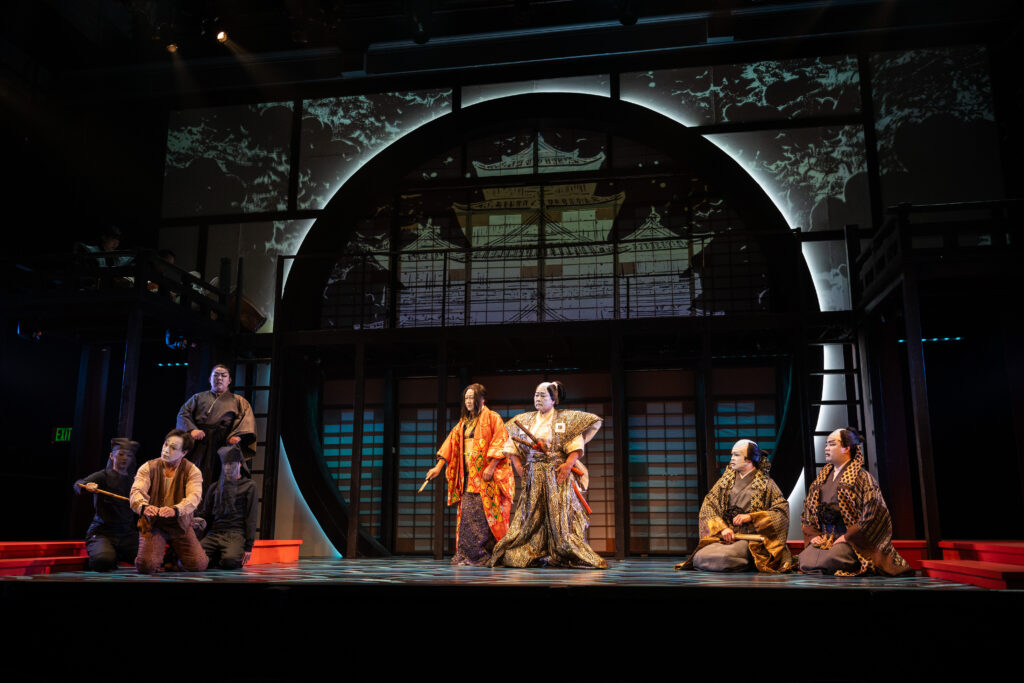
Tim Dang’s direction is both vibrant and graceful, benefiting from Yuka Takara’s splendid choreography, Tesshi Nakagawa’s glorious set design and David Murakami’s lovely projection design. Marc Macalintal’s music direction is expert, expressing the full range of Sondheim’s artistry, and onstage musicians Shih-Wei Wu and Tsugaru Terry add their notable talents to the show. Dang adds a nice touch to the final number, “Next,” in which modern versions of the Japanese people show up as a Shohei Otani tribute in a Dodger outfit, or in the Sulu costume from Star Trek, or wearing a Pokémon on their shoulders.
I could write about the brilliance of Sondheim’s songs in Pacific Overtures, from the riotous takedown of international trade aspirations in “Please Hello” to the haiku competition of “Poems,” but I imagine that people already know that Sondheim was a genius. What I will say is that this production of Pacific Overtures is first-rate, a remarkable achievement, and that any serious theater lover should secure their tickets ASAP.
Pacific Overtures is presented by East West Players at the David Henry Hwang Theater and plays through December 8, 2024. Tickets are available at https://www.eastwestplayers.org/.
